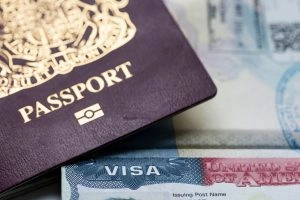You must have a minimum of £2 million available to you to invest freely in the UK. The funds must be in qualifying investments, which include:
- Share or loan capital in a trading UK business registered at Companies House. However, the company cannot principally be engaged in property investment, management or development;
- Pooled investment vehicles. Those that receive UK government funding or are a devolved government department; or
- If you obtained a Visa prior to 29th March 2019, then you can rely on UK government bonds for extension applications up to 5th April 2025.
If you invest more then you can apply for indefinite leave to remain in the UK quicker. By investing £5 million, you can apply after three years and £10 million, you can apply after two years.
Company investments must be doing business and not dormant or non-trading, further it must be registered at Companies House, must be registered for tax purposes with HMRC, have a registered office in the UK, have a UK business bank account and have at least two employees that are not directors.
What happens if I sell my investment during the Visa period?
If an investment is sold or forced to be sold then a new qualifying investment would need to be made. Further, if the value of that investment increases or decreases at sale then the new investment would need to be made at that value.
For instance, if you had a portfolio that includes £250,000 investment in shares in Company X, these are then sold for £260,000. The new investment would need to be made at £260,000 rather than the original £250,000. Similarly, if the investment drops then reduced investment would be made.
The new qualifying investment must be made within the reporting period or within six months, whichever is the sooner period. Therefore, it is important that any investments are managed.
Any capital from the investments cannot be used to pay management fees, additional costs or tax. Therefore, it is likely that a surplus is required.
What investments do not qualify?
The funds cannot be invested in:
- an offshore company or trust;
- trust companies;
- open-ended company structures;
- property investment, management or development firms;
- banks or building societies deposits;
- ISAs, premium bonds and savings certificates; or
- leveraged investments.
With the government keen to enforce the Immigration Rules and there being no mechanism to amend mistakes, it is important to get great advice. We offer hassle-free advice and work with partners that can help insure that your investments continue to meet the Immigration Rules. Get in touch today on 0207 242 1666 or email us.
[fts_twitter twitter_name=FaraniTaylor tweets_count=4 cover_photo=no stats_bar=no show_retweets=no show_replies=no]
